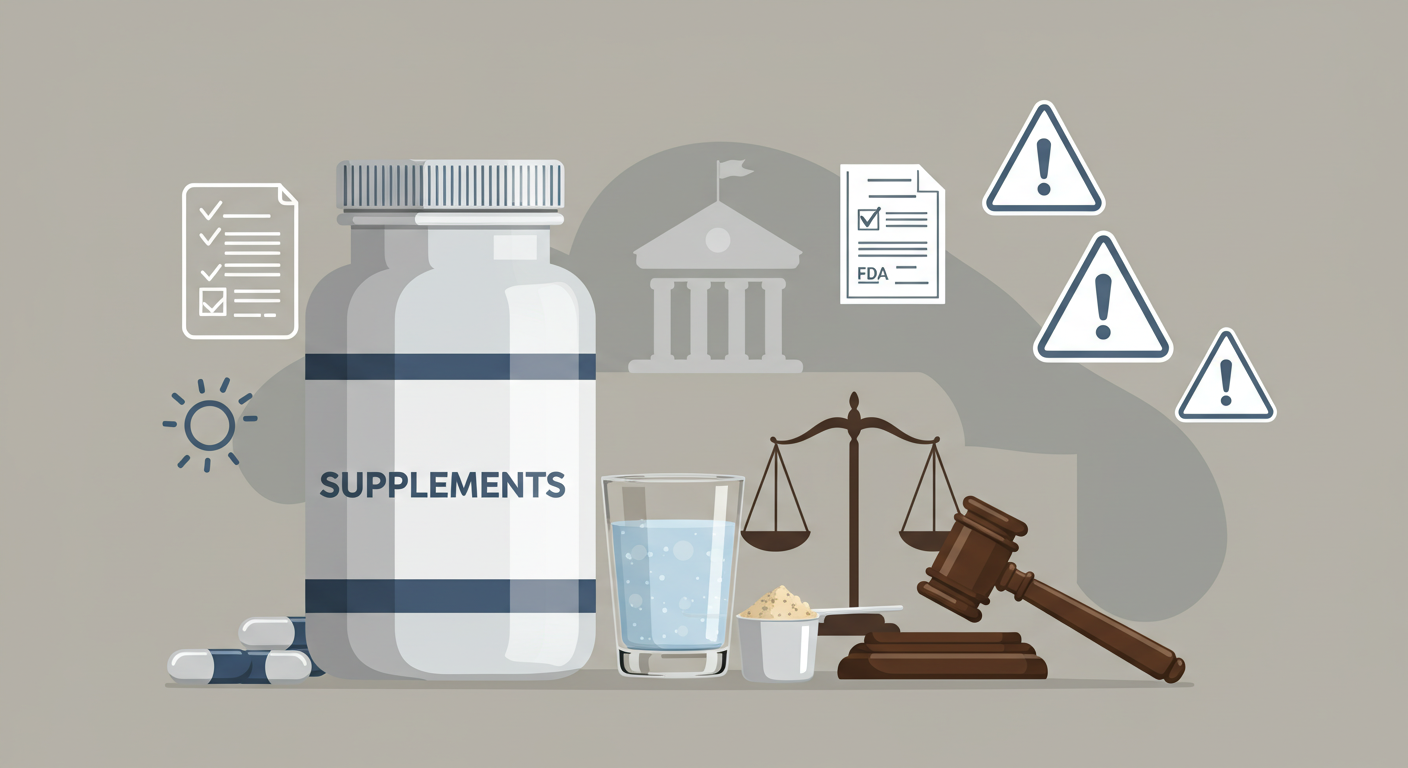Introduction
Many people took supplements to stay healthy. One popular brand was Isotonix. It sold powders with vitamins and minerals that you mixed with water. The company said these powders worked fast in your body. People said the company lied about how well the products worked. Some got sick or spent money on products that didn’t help.
This guide explains the Isotonix lawsuit in very easy words. It covers the main problems, proof from public records, possible health risks, and what it means for you. My name is Orland Howell. I’ve written about lawsuits for four years, focusing on health products. I want to help you understand this case clearly. This article uses court records, FDA reports, and people’s stories to share true facts. I aim to give honest information so you can decide if Isotonix is safe.
What Was Isotonix and Why Did People Like It?
Isotonix was a brand of supplements sold by Market America, a company started in 1992. Market America used a system called multi-level marketing (MLM). Sellers, called distributors, bought products and sold them to others. They also got others to join and earn extra money. Isotonix sold powders like OPC-3 for antioxidants, multivitamins, and products for heart or bone health.
The big idea was the “isotonic” formula. You mixed powder with water and drank it. The company said this helped your body use nutrients 90% faster than pills. This sounded great, so millions tried it for energy, better immunity, or less joint pain. The brand made billions of dollars through online sales and home parties.
But being popular didn’t mean it was safe or honest. The MLM system got attention from regulators. Some sellers made big claims to sell more, often without proof. This caused the 2025 lawsuit.
What the Lawsuit Said
The lawsuit was a class action, meaning many people with the same complaints joined together. It was filed in federal court and blamed Market America for lying. Here are the main issues in simple words:
False Promises About Health
People said Market America promised too much. Ads claimed Isotonix could “lower cholesterol,” “help arthritis,” or “make your immune system strong like medicine.” These sounded like cures, but U.S. law says supplements need strong proof from tests to make those claims.
The lawsuit said the company used words like “proven by science” but didn’t show good studies. For example, one ad said OPC-3 “helped cholesterol,” making people think it fixed high cholesterol. Experts said the proof was weak, using old studies or tests on animals, not big tests on people.
Hiding Possible Health Problems
Some users got sick with stomach pain, rashes, or worse problems like liver or heart issues. The lawsuit said Market America knew about these complaints but didn’t warn anyone. Some Isotonix products had very high vitamin doses, more than what’s safe daily. In some cases, According to a Doctors study too much vitamin B12 or antioxidants like resveratrol could harm organs, depending on a person’s health.
For example, court papers mentioned a woman who took Isotonix Daily Essentials and had liver problems. Her doctor thought the supplement might be the cause. Many similar stories were reported in the lawsuit.
Problems with the MLM System
The lawsuit said Market America’s business focused more on getting new sellers than selling products. Sellers had to buy $130 of products each month to stay active. They earned more money by getting others to join, not by selling to customers. The lawsuit said most sellers lost money, even though ads promised “big income” and “financial freedom.”
A 2017 lawsuit raised similar issues about the MLM system. It was reviewed again in North Carolina in 2025. The lawsuit said this system might break FTC rules for pyramid schemes, where only early sellers make money, and most others lose.
These problems were serious. Plaintiffs seek refunds and damages, which could amount to millions if the court agrees.
Proof for the Lawsuit
Courts need real proof, not just stories. Here’s what supported the lawsuit, based on public records:
FDA Warnings
The U.S. Food and Drug Administration (FDA) checks supplements. In February 2020, the FDA sent Market America a letter saying Isotonix products were “misbranded.” Problems included:
- Wrong labels: Some said there were no fats or carbs, but there were small amounts.
- Wrong measurements: For example, copper was listed as “100 mcg” instead of “mg.”
- Unclear ingredients: Things like thiamin HCL weren’t explained well.
The FDA also said Market America didn’t report serious side effects, like allergies or organ damage, which broke safety rules. A similar letter came in 2016. These letters were important proof in the lawsuit.
Company Emails and Complaints
In court, plaintiffs got emails from Market America. One from 2023 showed bosses ignored some safety complaints to keep selling. Many customer complaints weren’t answered. Websites like the Better Business Bureau (BBB) had reviews calling Isotonix “overhyped” or “not safe.”
Expert Opinions
Doctors and professors helped the case. A liver doctor from Johns Hopkins said high doses of antioxidants in OPC-3 could harm some people, especially older adults. A Harvard professor said the ads were “tricky” because they used medical words without clear warnings.
Sales Numbers
Market America’s records showed most money came from signing up new sellers, not selling products. FTC rules say MLMs must focus on sales to customers to be legal. This helped the pyramid scheme claim.
There wasn’t one perfect piece of proof, but all together, it made a strong case. Market America said their claims were about “supporting health,” which is allowed if it’s not about curing diseases. They showed some studies, but plaintiffs said those were weak or biased.
Possible Health Risks
Not all supplements are safe. While many used Isotonix with no problems, some risks were reported. Here’s what people and doctors said:
High doses of vitamins A or B could hurt your liver, depending on your health. A study in the Journal of the American Medical Association (JAMA) said supplements caused about 23,000 hospital visits each year in the U.S., but this was for all supplements, not just Isotonix. Too much omega-3 might thin your blood and cause heart issues in some cases.
Common side effects included:
- Stomach pain or diarrhea from the powder.
- Allergic reactions to things like grape seed extract.
- Problems with medicines, like blood thinners.
Not everyone got sick, but risks grew if you used it a long time or took too much. The FDA doesn’t test supplements like drugs, so labels might not warn you. If you use Isotonix, watch for yellow skin (a liver problem) or a fast heartbeat. Stop using it and see a doctor if you notice these.
In my four years writing about health lawsuits, I’ve seen how hidden risks hurt trust. Always talk to your doctor before starting a supplement.
Market America’s Response
Market America said they did nothing wrong. In July 2025, they stated: “Isotonix was safe and backed by science. We fixed label problems years ago and reported all issues.” They showed tests from independent labs proving the products absorbed well. They also said many customers were happy and shared positive reviews online.
About the MLM, they called it a “legal UnFranchise” focused on selling products, not just recruiting. They settled a 2017 lawsuit about income promises quietly, paying some sellers. They said their business followed FTC rules and helped thousands earn money.
Their lawyers said the plaintiffs made things sound worse than they were. They pointed to happy user reviews and asked the court to throw out parts of the lawsuit.
What the Lawsuit Means for You and the Industry
For People Using Isotonix
If you used Isotonix since 2020 and had problems, you might join the lawsuit. Check lawsuit websites for deadlines. Even if you weren’t sick, you could get money back if ads lied to you.
To stay safe:
- Look at labels for seals like USP.
- Ask if a supplement says it cures something. If it does, talk to a doctor.
- Check facts on trusted sites like the National Institutes of Health (NIH) or Mayo Clinic.
For the Supplement World
This lawsuit could change how supplements are sold. The FTC and FDA might make tougher rules for MLMs, like they did with Herbalife’s $200 million fine in 2016. Companies may need better proof for claims.
The case showed MLM problems, with many sellers losing money. More lawsuits might happen if recruiting is more important than selling.
As someone who has studied many lawsuits, I think this case pushes for honesty. Companies must prove what they say.
What’s Next in 2025?
A trial could start in early 2026, or a settlement might happen sooner. Check classaction.org for news. If settled, people might get $50 to $500 back, and labels could change. No recall happened as of October 2025, but watch FDA updates.
Conclusion
The Isotonix lawsuit showed big problems: possible false promises, health risks, and unfair sales. Proof from FDA letters, emails, and experts raised real concerns. Not all supplements are bad, but this case says to check claims carefully. Your health matters too much for guesses. Talk to doctors, read true facts, and choose wisely. If this guide helped, share it—knowing more keeps us safe.
Disclaimer
This article is for informational purposes only and is not legal, medical, or professional advice. Orland Howell and affiliates are not liable for any actions, decisions, or losses from using this content. Facts are based on public sources as of October 6, 2025, and may change. Consult a licensed lawyer for legal issues or a doctor for health concerns before acting. Use this information at your own risk.
Explore More:
CarGuard Lawsuit: 2025 Easy Guide: Claims, Class-Action Updates & What Consumers Should Know
CarShield Lawsuit 2025 — $10M FTC Settlement and Class-Action Updates

Orland Howell is a seasoned content writer with four years of deep expertise in crafting compelling and informative content about lawsuit settlements. With a keen understanding of legal nuances and a talent for translating complex topics into clear, engaging narratives, Orland helps law firms, legal professionals, and clients communicate effectively. His work spans blog posts, articles, whitepapers, and website content, all designed to educate, inform, and drive results. Passionate about empowering audiences with knowledge, Orland combines precision, creativity, and industry insight to deliver content that resonates and builds trust.






